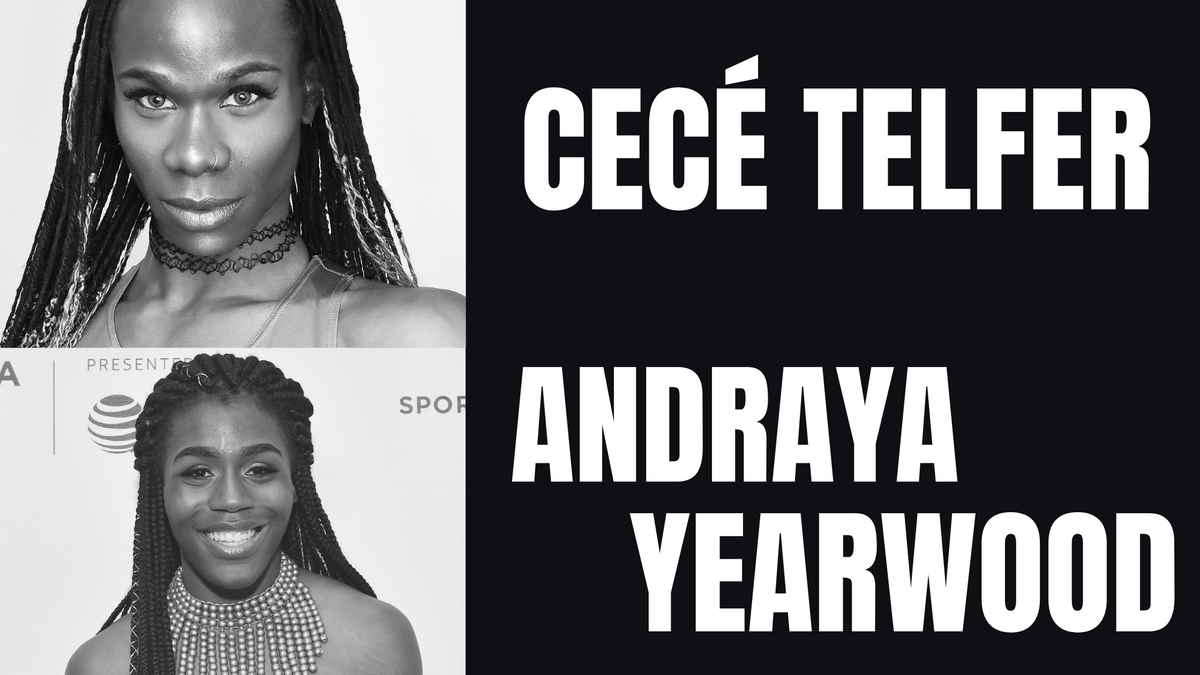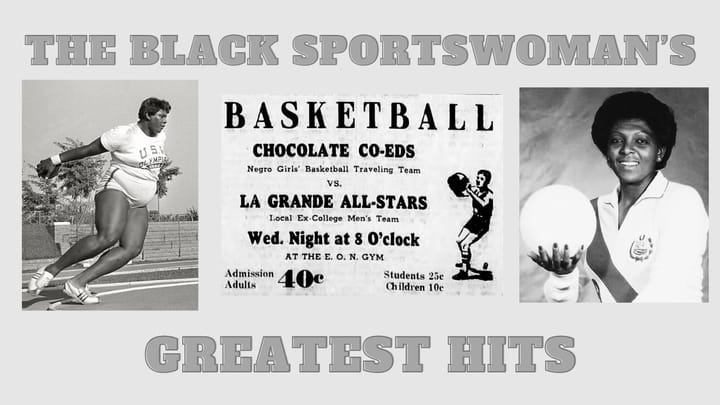CeCé Telfer, Andraya Yearwood & how to support Black trans sportswomen
CeCé Telfer, the first openly trans woman to win an NCAA title, is training to qualify for the Olympic Games in Tokyo.

Today marks International Transgender Day of Visibility. Today, I want to share the accomplishments, stories and uplift these two Black sportswomen I’ve written about – CeCé Telfer and Andraya Yearwood. In this article, there are also ways listed that we – a community designed to celebrate Black women athletes – can do to make sure our trans sisters feel welcome, safe and included in women’s sports, now, while an increase of bills attack trans youth and women, and all the time. Chase Strangio and Raquel Willis have outlined what we can do outside of sports.
CeCé Telfer is the first openly trans woman to win an NCAA title. Now, the 2019 NCAA D2 400m hurdles champ is training to qualify for the Olympic Games in Tokyo.
Telfer is based in New Hampshire, working at a nursing home and training daily – sometimes twice.
“Those days where I have to try to remind myself after coming home from hours and hours of labor, and sometimes it's a 16 hour shift, I still come back home and I still have to get my ab workout in and go to sleep,” she told The Black Sportswoman.
Sometimes she has to convince herself to get out there.
“You’re already on the road.”
“You want to be a Nike sponsored athlete? Just do it.”
“You want to be on that stage? You just gotta do it.”
“How bad do you really want it, CeCé?”
The competition Telfer is training for doesn’t take place until later this Spring. But right now she’s self-funded and giving everything to try to qualify for the Olympics.
“This is a cause I’m willing to die for, period,” she says.
Telfer wants to be one of the greats. On her website, she says she aims to be “to be the first black female in transition to compete at the Olympics.”
But her goals aren’t just about her, which is why she’s aiming to make a difference in the sports field – where she feels she can have the biggest impact.
“I'm doing this for kids who don't have an opportunity to be themselves. I'm doing this for the kids who are confused about who they are. I’m doing this for the trans youth,” she said. “I'm doing this for the LGBT. I’m doing this for the kids who are different and that (are) frowned upon and looked down upon in society. I am doing this for the oppressed.”
Black men who want to compete deal with racism in sports. Black women deal with racism and sexism, constant criticism, and queer athletes deal with homophobia on top of it, too.
Now with a huge wave of bills, trans women and girls are being targeted – for wanting to be on a team, for wanting to play a sport they love with their friends.
“Do we really want to see another oppressed group, go through what our history has been through?” Telfer asks. “Especially another oppressed group of the same color?
“If we're fighting the same fight, the same battle, the same war, why not be in the same boat and support each other?”
Trans women who want to participate in sports are being attacked by people who claim to want to “protect women’s sports,” when nothing is actually at risk when trans girls and women compete.
In some states, there are proposed bans of trans women and girls in women’s sports, proposed medical examinations for those who want to play, and more. Arkansas passed a bill to ban health care for trans youth, so this is about more than sports. When Telfer leaves the house, she’s often stared at and doesn’t feel safe.
“I have to walk with eyes behind my head because anything is possible. Anybody can do anything at any time,” she said. “I'm living my day-to-day life with this weight on my shoulders of my safety. My safety is not protected. What is it going to take, one person with a gun or anything to end it right then and there? It’s over.”
What can the women’s sports world – allies, conspirators, fans, etc. – do to better support trans women and girls? Telfer says, we can start by changing our language. Ask preferred pronouns, educate and raise awareness (and put people in their place if need be), and support trans people unconditionally.
“We are human,” she said. “We are your brother and sister. Especially if we're doing the right thing, we're not doing anything to harm anybody else. We’re simply just living our lives.”
Andraya Yearwood echoed that sentiment – she just wants equality between cis and trans women. The story of her high school career has been written about in many national publications, though she no longer runs – she’s now more of an advocate (though she hesitates to call herself one).
Yearwood is now a freshman at North Carolina Central University. She wanted to stop competing when she got to college for a few reasons: she was tired of the criticism and scrutiny, she didn’t want to dedicate all of her time to track, and she wanted to try something new.
Now she’s a Spanish major with a political science minor, with goals of pursuing careers in linguistics, translation/interpretation or anything language-related.
Her best and worst sports memories are the same: being one of the first openly trans athletes to compete at the New Balance Nationals at the Armory in New York. That was the high. The low? Finishing second-to-last in the 60-meter dash.
Though she is no longer competing, she still receives negative, hateful messages from people attacking her for simply existing. Yet she still hops on Zoom calls – similarly to the call where we spoke – to share her story with news organizations with hopes to educate and inspire. She wished more people asked about her well-being in interviews, though.
“(Questions) people don't ask are, ‘how are you?’ or ‘how are you doing with all that you're going through?' And I think that question is very crucial,” Yearwood said. “Sometimes because of all these interviews and video requests, I am seen as another interview opportunity or another article to write about. I want people to know that I’m more than just a talking point.”
Yearwood and Telfer both love music – the Olympic hopeful loves to sing and listen to Jamaican singer Shenseea while the college freshman loves Brent Faiyaz and Rosalía. They also share their desire to continue to share the story of their lives to inspire those who come after them.
Ultimately, Yearwood wants people – and cisgender women – to understand that trans women and girls competing in sports isn’t an attempt to “dismantle” women’s sports.
“I just hope that they come to an understanding about where we are, where we're coming from,” she said, “And hopefully see that we as people, and we as trans women, are not a threat to them, are not a threat to their sports.”



Comments ()